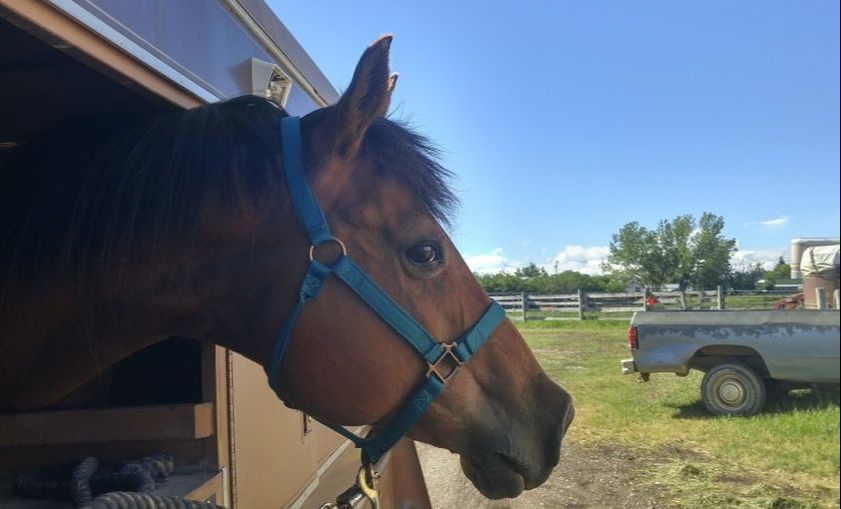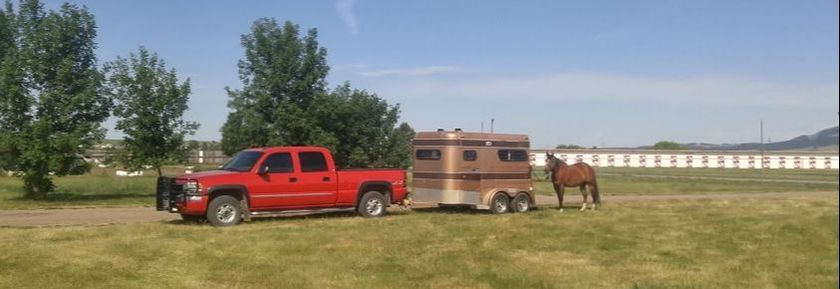|
This post may contain affiliate or sponsored links. Please read our Privacy Policy and Disclaimer. If you board horses on your property, should you require new boarders to have a valid Health Certificate and negative Coggins Tests? Does it matter if they move from within the same county, out of county, or out of state? These are all questions I had to consider when I opened my Tucson horse boarding facility earlier this year. I have to protect the horses who already live on my property, but I don’t want to make my requirements so stringent that no one wants to bring their horse here. This is what I currently require, and how I reached that decision. Health Certificate Heath Certificates are issued by a veterinarian and declare that the horse is free from infectious diseases at the time of exam. Any horse crossing state lines must have a health certificate. Most states require one issued within 30 days, but some are as short as 10 days. If a horse is coming to my facility from out of state, I know they will have a Health Certificate and I take a copy of it. The limitation with this is that the horse could have been exposed to illnesses during travel, and although he was healthy when he left, it does not guarantee that he is healthy when he arrives. He may not be visibly ill, but he could have been exposed to something that will manifest in a few days. I keep the new horses away from the established residents for 30 days, but I realize that they will have access to some shared areas, such as the arena and the wash rack. I minimize exposure to any potential illnesses by cleaning with bleach. Yes, only bleach, none of those fancy cleaners. Bleach is the best killer of disease. I regularly wipe down communal areas for the first 30 days after a new horse arrives. This is quick and easy. What about horses that move to my facility from another facility in the same county, or horses that come for a clinic or day-use? At this time, I don’t require health certificates for these horses, but many have them because they show regularly. When they have a health certificate, I take a copy. After any short-term event, like a clinic, I wipe down the communal areas with bleach. Again, this helps minimize the resident horses’ exposure to illnesses. Coggins Test A Coggins Test shows if a horse carries Equine Infectious Anemia (EIA) antibodies in its blood. EIA is a potentially fatal and highly contagious disease that spreads from horse to horse by blood-sucking insects such as deer flies and mosquitoes. There is no cure for EIA. The American Association of Equine Practitioners recommends that any horse with a positive Coggins Test be euthanized because of the risk of infecting other horses. All states require a negative Coggins Test for horses crossing state lines. Many shows require them as well. Horses arriving at my boarding facility from out of state have negative Coggins Tests, and I take a copy of this for my records. Horses arriving from in state usually do not have Coggins Tests unless the show frequently. At this time, I don’t require incoming horses to have negative Coggins Tests, but I encourage testing whenever one of my boarders purchases a new horse. Arizona has not had a case of EIA since 2009, but if an outbreak starts, I will require negative Coggins Tests before anyone can bring a horse on the property, for day-use or for boarding. The limitation with Coggins Tests are that they only show if a horse has EIA antibodies in their blood at the time of testing. The horse could be exposed to EIA the next day and not be retested for six months. In the meantime, he has the opportunity to spread EIA everywhere he goes. Until an outbreak occurs or the horse starts showing symptoms, the owner has no reason to retest. Other Documents When every horse arrives for boarding, I take a picture of it with the day’s newspaper. This provides proof of the horse’s condition on his arrival. Along with Health Certificates and Coggins Tests, I also require copies of brand inspections and registration papers if the horse has them. This provides me with proof that the owner owns the horse. Protect the Resident Horses The biggest reason for requiring Health Certificates and Coggins Tests are to protect the resident horses. I don’t want outside horses bringing infectious diseases, especially those that are fatal. My facility is set up to appropriately quarantine new horses, but I want to have every indication that the incoming horse is healthy before I let them come on my property.
3 Comments
10/21/2023 08:15:44 am
I wanted to express my gratitude for your insightful and engaging article. Your writing is clear and easy to follow, and I appreciated the way you presented your ideas in a thoughtful and organized manner. Your analysis was both thought-provoking and well-researched, and I enjoyed the real-life examples you used to illustrate your points. Your article has provided me with a fresh perspective on the subject matter and has inspired me to think more deeply about this topic.
Reply
11/29/2023 10:42:34 am
Upper respiratory tract infections are among the most common diseases in childhood. Diseases such as flu, colds and throat infections can often be seen because children's immune system has not yet fully developed. These diseases occur more often, especially during the winter months, and can negatively affect the child's quality of life.
Reply
2/7/2024 01:14:15 am
Dua for Nazar, also known as the prayer for protection from the evil eye, is a supplication that Muslims recite to seek protection from the harmful effects of envy and jealousy cast upon them by others.
Reply
Leave a Reply. |
AuthorWelcome! I've been a freelance writer since 2002 and have numerous horse-related articles published in print and online publications. I have a Bachelor of Science degree from Rocky Mountain College with a major in Equestrian Studies and a minor in Business Management. My current business ventures include High Plains Arena and real estate investing. Archives
March 2019
Categories
All
|
Proudly powered by Weebly




 RSS Feed
RSS Feed